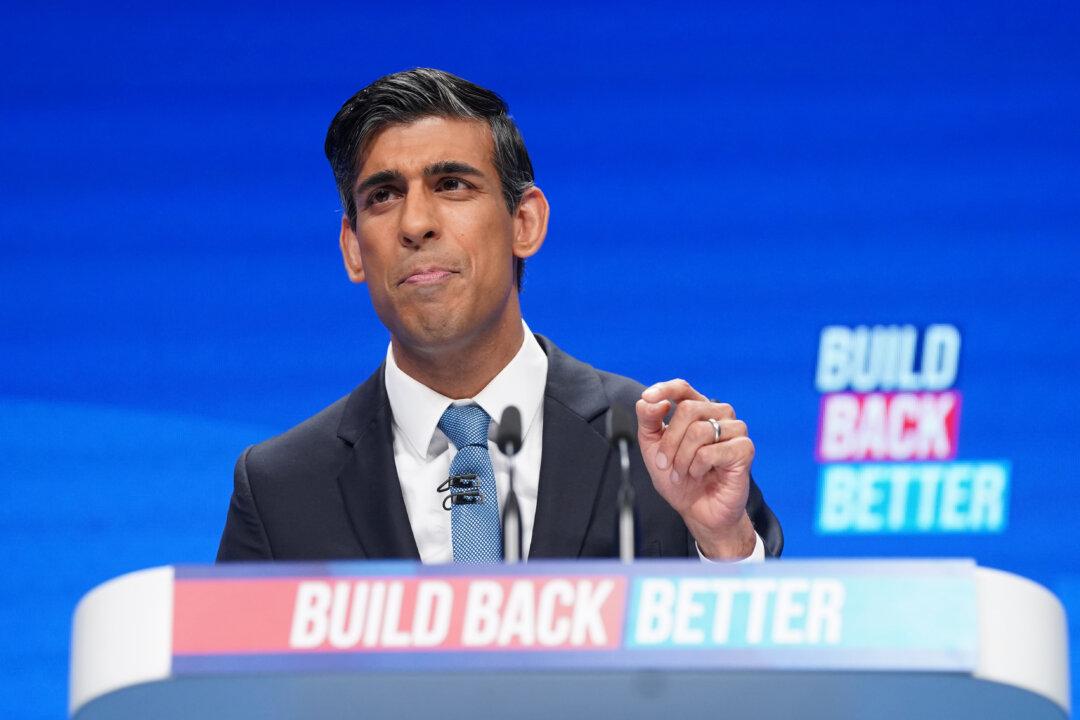Chancellor of the Exchequer Rishi Sunak refrained from ruling out future tax rises on Monday as ministers face pressure from their own party to put a lid on taxes.
After Prime Minister Boris Johnson declined to rule out tax rises in the upcoming budget last week, senior Conservative Party members have warned the government that the size of the tax burden is becoming “unreasonable” and it’s hurting the Tories’ credibility as a low-tax party.





